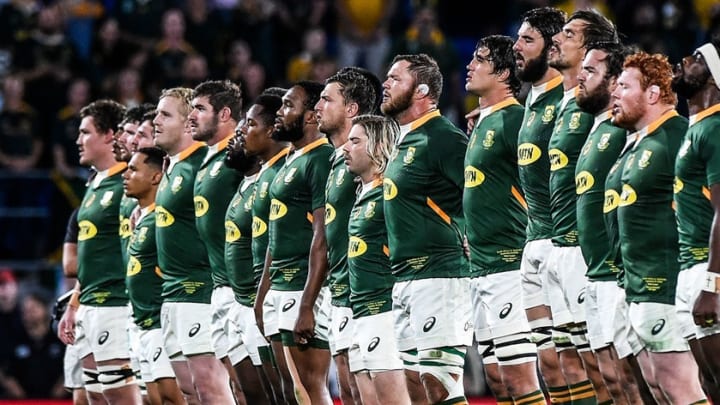Springboks 2024: A New Era Of Rugby Excellence

By Mohamed Bahaa
The Springboks have changed drastically since the moment Siya Kolisi raised the Webb Ellis Cup in October 2023, therefore commemorating South Africa's historic fourth Rugby World Cup victory. Not only in the personnel changing, but also their playing style, suggesting a possible new golden period for South African rugby.
The Springboks started a new chapter when several important members of Rassie Erasmus's original backroom crew left. Led by the creative Tony Brown, the new attack coach, the fresh coaching squad has had an instant influence. Brown's impact has especially been seen in widening the team's attacking tactics and adding more width and variety in their play—a sharp contrast to their World Cup-winning campaign's which had a more conservative approach.
Along with a major change in the squad's makeup, this tactical revolution has also brought about the current world champions are building the foundation for the future, not lounging around their laurels. The Springboks are starting to build a team able to defend their championship in 2027 by including a wide range of fresh players into the Test arena. This deliberate injection of new talent points to a long-term vision aiming at ongoing excellence on the global stage.
Still, a crucial question remains: Are the Springboks today a better squad than they were in 2023 given all these developments? Hanyani Shimange has set off a fascinating conversation with Springbok icon Jean de Villiers. De Villiers presented a provocative analysis of the current team's development even though he stopped short of pronouncing them to be better.
De Villiers said, stressing the Springboks' growing attacking threat, "I think we've evolved." “There’s way more threat from an attacking point of view. You’ve got so much more variety, so defending I think is far more difficult.” His remarks capture the team's increased volatility, which throws doubt on the opposition defensive strategies.
The Springboks have not given up the strengths that brought them World Cup triumph, despite this development, though. “We always have the capability of reverting back to our traditional strength, like we saw at the weekend with the maul. So it really does make us extremely dangerous,” De Villiers continued.
In essence, the indicators of development are indisputable even if it would be too early to determine whether the Springboks have exceeded their 2023 incarnation. The Springboks of 2024 are not only changing—they may very well be rising to a new degree of rugby excellence—with a more varied attack, strategic depth, and the capacity to revert to their historic strengths.
